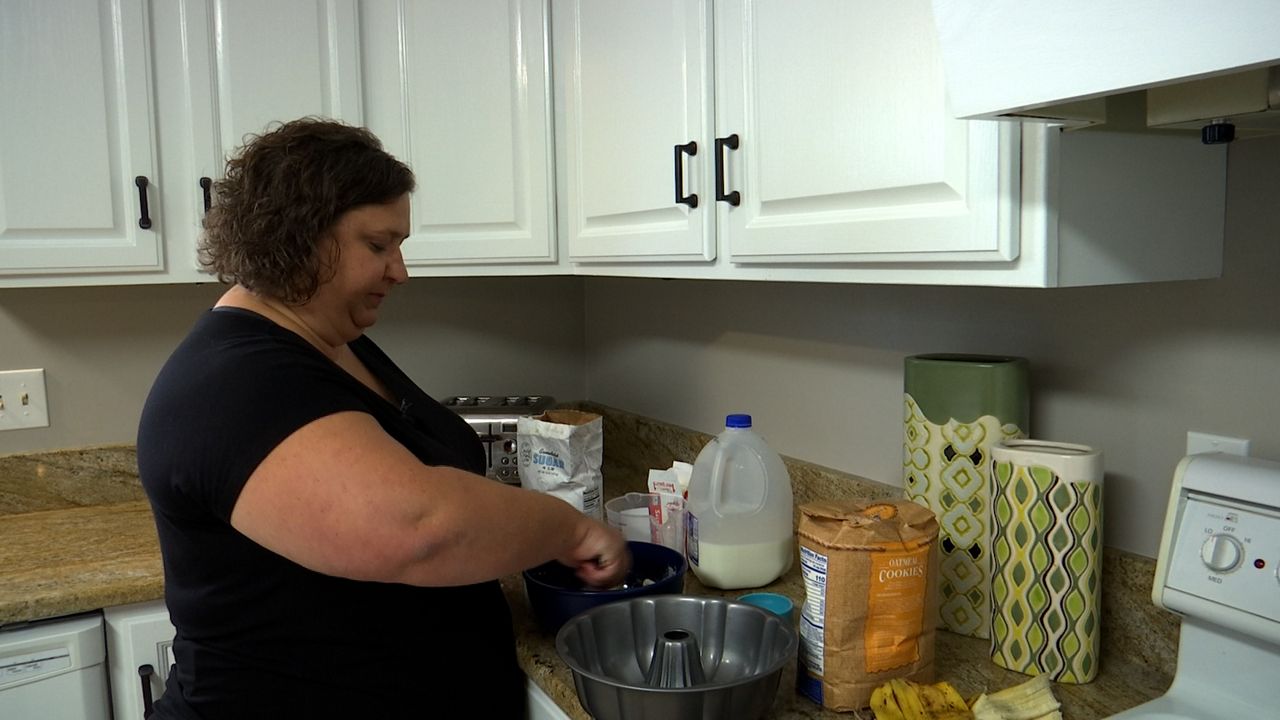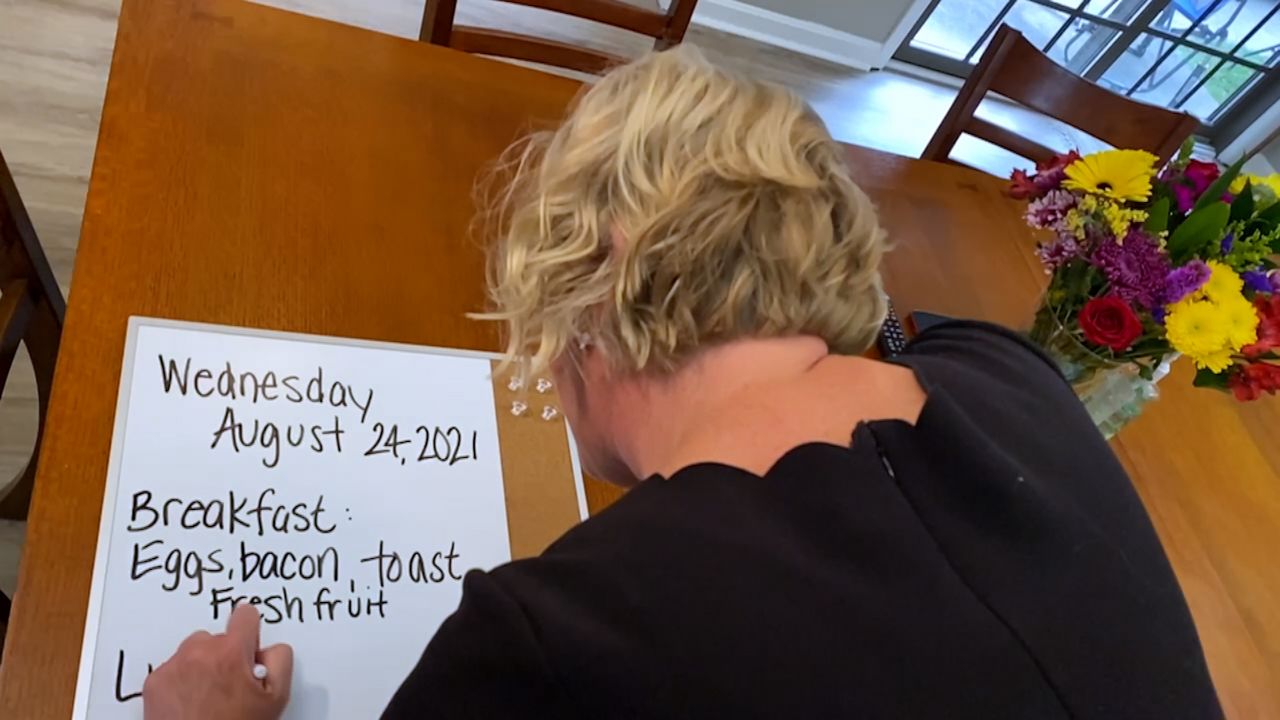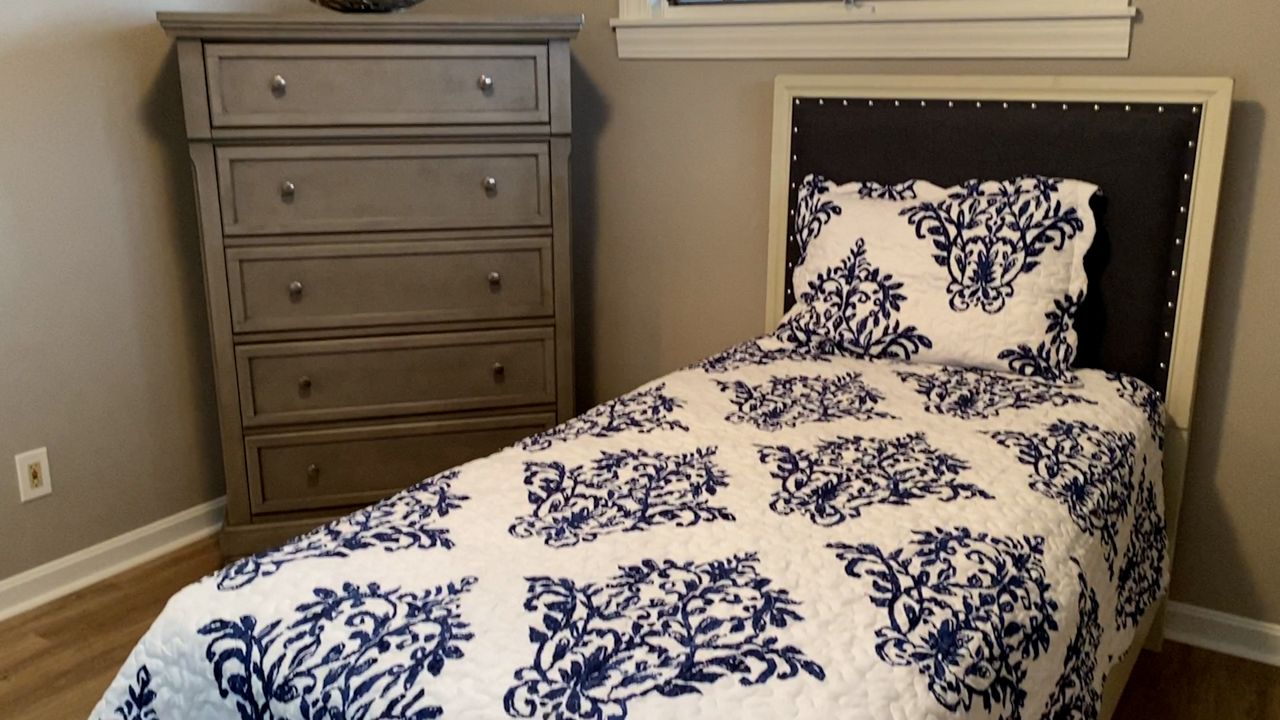CINCINNATI — For many families, the coronavirus pandemic complicated their plans and perceptions of long-term care. Many had to go months without seeing their loved ones, fearing outbreaks.
Meanwhile, families who opted for at-home care never had to worry about access, but maintaining a full-time job while working as a caregiver at home continued to overwhelm those without medical training or outside support.
Longtime caregivers Elizabeth Grinkemeyer and Brooke Williams wanted to find a happy medium for the families they served, and after years of planning, launching their business Elite Living and opening their first personal care home in the summer of 2021.

Personal care homes are residences that provide shelter, meals, 24-hour staffing and around-the-clock care for clients, like an assisted-living facility, but often on a much smaller scale.
“They’re big on the East Coast and some of the West Coast and hadn’t really seen much around here and not on the west side of Cincinnati at all,” Williams said. “We wanted to provide a new option for families.”
It’s that small environment that sold the option to Grinkemeyer. After 15 years working as a caregiver, she was looking for a place that would be less stressful on staff without compromising care.
“What we saw was communities struggling to provide staffing and provide good care for residents and allowing them to really age in place and provide that personalized attention where they can have the highest quality of life that they deserve,” she said.
The home Grinkemeyer and Williams opened is zoned for five patients total.
“It’s just a very home-like setting, and you’re with the same close-knit group of people all the time,” Grinkemeyer said.

As CEO of Elite Living, she said she designed the homes to feel as homelike as possible, imagining a dynamic similar to “The Golden Girls.” In the debut home, there are five bedrooms, that can be customized for each client, a shared living room for recreation and programming, and a large kitchen where caregivers prepare the day's meals.
Grinkemeyer said their licensing requires them to have a preplanned menu every week, but their size allows for some flexibility based on what the clients want.
“Our resident has requested pumpkin pie for dinner so that was an add to our menu today,” she said.
Williams and Grinkemeyer co-founded Elite Living and bought their first home last year, hoping to it renovated and licensed by the end of 2020, but the pandemic forced them to take a step back, practice patience and re-evaluate.
Williams said the delay allowed them to talk to prospective client families in-depth about what they’re looking for in long-term care and where their greatest concerns lied. As the pandemic continued, Williams said many told her their biggest worry was whether or not they’d ever be barred from visitation again.
She said personal care homes can mitigate some of those concerns because it’s easier to keep track of who is coming in and out, what their vaccination status is, whether they’ve been tested, or do contact tracing if necessary. All those factors make it easier to work case by case rather than instituting a blanket ban.
“We’re able to do that in the smaller setting and really show the families that we want to customize for their loved one the best we possibly can,” Williams said.

Grinkemeyer said Elite Living finished its renovations in early 2021 and finished its licensing and approval process in the spring.
“It’s just been really rewarding know that we’ve worked so hard to get this going,” she said.
The first patient moved in shortly after it opened in the summer and hopes to have two more moved in by mid-fall. After this home fills up, the pair hopes to open a series of homes around Cincinnati’s west side.
“One could specialize in memory care, another could house couples, there are a lot of possibilities,” Grinkemeyer said.
In Ohio, personal care homes cannot accept Medicare or Medicaid.



